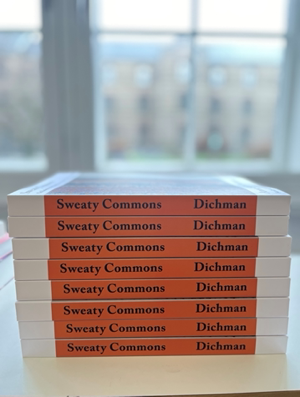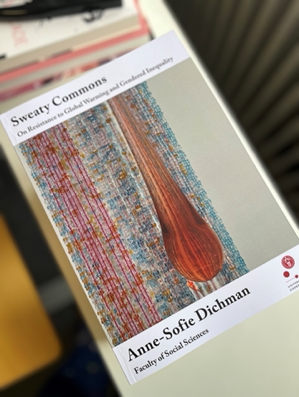

Sweaty Commons
Sweaty Commons draws on feminist theory, new materialism, and ethnographic research to develop a novel account of how bodies live and resist the contemporary political conditions of global warming and social, gendered inequality. The dissertation is grounded in fieldwork with the French gilets jaunes (yellow vests) who respond to these crises by enacting alternative ways of living together – what they refer to as „the commons‟, by which they mean a collective, democratic, and inclusive mode of self-organization that cares for common goods, such as nature and food.
Sweaty Commons explores the gilets jaunes‚ world-making practices with a particular focus on self-organization, gender politics, and care for the more-than-human, materialized in three configurations: the general assembly, the community kitchen, and the peach trees. The lived experiences of notably the gilets jaunes women: Louise, Fatima, and Alice inform the concept of sweaty commons on three levels. Politically as a mode of innovative organization, methodologically as an approach to study precarious, gendered, and more-than-human bodies, and ontologically as a way to think with the feminist and ecological lessons that sweat embodies.
